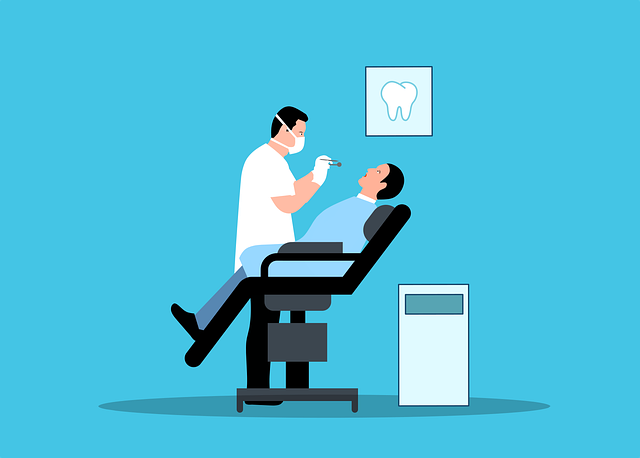Understanding Dental Malpractice: When to Contact Experienced Dental Malpractice Attorneys

Going to the dentist should be a routine part of maintaining your oral health. However, when dental professionals fail to provide care that meets accepted standards, patients can suffer serious injury and ongoing pain. Understanding dental malpractice and knowing when to seek help from qualified dental malpractice lawyers can make a significant difference in receiving the compensation you deserve. A dental malpractice case, often involving complex issues like nerve injuries from various procedures, requires experienced attorneys to navigate the legal aspects and achieve favorable outcomes.
What Constitutes Dental Malpractice?

Dental malpractice occurs when a dental professional fails to provide the standard level of care, resulting in harm or injury to a patient. Not every bad outcome from dental treatment qualifies as malpractice. To establish a dental malpractice claim, the following four elements must typically be proven to prove negligence:
- A dentist-patient relationship existed, establishing a duty of care
- The dentist breached this duty by failing to meet accepted standards
- This failure directly caused an injury to the patient
- The patient suffered measurable damages as a result
Negligent dental care can take many forms, from diagnostic failures to errors during treatment or post-procedure complications.
Common Examples of Dental Malpractice Cases

Dental malpractice lawyers regularly represent clients in various types of negligence cases. These cases often involve injuries resulting from negligent care. Some of the most frequently seen dental malpractice cases include:
Improper Root Canal Procedures
Root canal treatment requires precision and care. When performed negligently, patients may experience severe infections, nerve damage, and extraordinary pain that extends well beyond normal recovery periods.
Anesthesia Errors
Administering too much or too little anesthesia can lead to serious complications. Dentists must thoroughly review a patient’s medical history to prevent adverse reactions and ensure patient safety during procedures.
Failure to Diagnose Oral Conditions
When dentists miss signs of gum disease, oral cancer, or other significant oral conditions, the delay in necessary treatment can lead to worsened outcomes and more invasive procedures later.
Issues with Dental Implant Treatment
Dental implant failures can result from improper placement, infection, or using inappropriate materials. These failures often lead to additional surgeries, bone loss, and significant pain.
The Impact of Dental Malpractice on Patients

When dental procedures go wrong due to a dentist’s negligence, the injured patient often faces:
- Prolonged physical pain and suffering
- Additional surgeries or corrective procedures
- Significant medical bills for remedial treatment
- Lost wages from time off work
- Psychological trauma and dental anxiety
- Permanent injury or disfigurement
An experienced dental malpractice attorney understands these impacts and works to ensure clients receive appropriate compensation for all damages suffered. The injured patient has the burden of proof to demonstrate that negligence by the dentist led to their injury.
How Dental Malpractice Attorneys Build Your Case
Proving dental malpractice requires specialized legal knowledge and resources. Choosing a reputable law firm with extensive experience in dental malpractice cases is crucial. Professional malpractice attorneys follow a systematic approach:
Thorough Case Evaluation
During your free consultation, dental malpractice attorneys will evaluate your case by reviewing records and determining whether your situation meets the criteria for a valid claim in order to obtain the best possible result for you.
Expert Testimony
Establishing a dentist’s negligence typically requires testimony from other dental professionals who can confirm that the care provided fell below accepted standards in the field.
Documentation of Damages
Your legal team will work to document all damages, including medical bills, lost wages, pain and suffering, and any future treatments that may be required as a result of the negligent dental care.
Negotiation or Litigation
Many dental malpractice claims are settled through negotiation, but experienced malpractice lawyers are prepared to take your case to trial if necessary to secure a favorable jury verdict.
Timeframe for Filing a Dental Malpractice Claim
It’s crucial to understand that there are strict time limits for filing malpractice claims, known as statutes of limitations. These vary by state but generally range from one to three years from either:
- The date the negligent procedure was performed
- The date you discovered (or reasonably should have discovered) the injury
Consulting with dental malpractice attorneys promptly after suspecting negligence is essential to preserve your legal options.
Choosing the Right Dental Malpractice Lawyer
When selecting legal representation for dental malpractice matters, it is crucial to choose a lawyer with a proper practice in dental malpractice. This ensures that the lawyer adheres to accepted standards of care, which is essential to avoid negligent acts that could lead to malpractice claims and harm to patients. Consider:
Experience with Dental Cases
Look for law firms that specifically handle dental malpractice cases within the field of dentistry, not just general personal injury claims. Dental malpractice involves unique medical and legal considerations.
Track Record of Success
Reputable malpractice attorneys will have a history of successful settlements and verdicts in similar cases. Ask about their experience with cases like yours.
Communication Style
The attorney-client relationship works best when there’s clear, consistent communication. Choose representatives who take time to explain complex legal concepts and keep you informed.
Fee Structure
Most dental malpractice lawyers work on a contingency basis, meaning they only get paid if you receive compensation. Understand the percentage they charge before signing any agreements.
Questions to Ask During Your Free Consultation
When meeting with potential dental malpractice attorneys, consider asking:
- Have you handled cases similar to mine?
- What challenges do you anticipate with my claim?
- How long might my case take to resolve?
- Will you personally handle my case, or will it be assigned to another attorney?
- How often will I receive updates about my case progress?
These questions can help establish whether there’s a good fit between you and the legal team.
Moving Forward After Dental Malpractice
Recovering from dental malpractice involves both physical and emotional healing. While pursuing compensation can help with the financial burden, victims often need additional support:
- Seek appropriate medical care to address any ongoing issues
- Consider support groups for those who’ve experienced similar trauma
- Document your experience and recovery process
- Maintain open communication with your legal team
How to Protect Yourself From Dental Malpractice
While not all dental malpractice can be prevented, patients can take steps to reduce their risk:
- Research potential dentists thoroughly
- Ask questions about recommended procedures
- Get second opinions for major dental work
- Keep your own records of treatments and outcomes
- Provide complete information about your medical history
When to Contact Dental Malpractice Attorneys
If you believe you’ve been injured due to a dentist’s negligence, don’t delay in seeking legal advice. Contact experienced dental malpractice attorneys if:
- You experienced unusual or severe pain following a dental procedure
- Your condition worsened after treatment
- The dentist performed a procedure without proper informed consent
- You required significant corrective work after the initial treatment
- An oral surgeon or dentist admitted to making a mistake
The repercussions of dental malpractice can be severe, affecting the patient’s overall health and well-being. In some cases, the patient’s condition may deteriorate significantly, leading to serious consequences, including wrongful death. Many dental malpractice lawyers offer a free consultation to evaluate your case, allowing you to understand your legal options without financial risk.
Conclusion: Advocating for Your Rights After Dental Negligence
Dental malpractice can have life-altering consequences. When dental professionals fail to meet the standard of care, patients deserve compensation for their suffering. Experienced dental malpractice attorneys serve as advocates, helping injured patients navigate complex legal processes while focusing on recovery.
If you’ve experienced harm due to negligent dental care, remember that you have rights. In addition to obvious negligence, there are other cases where dentists may lack proper qualifications or licensing, emphasizing the importance of regulatory compliance. Consulting with knowledgeable malpractice lawyers can help you understand whether you have a valid claim and the potential value of your case. With proper legal representation, you can hold negligent dental professionals accountable while securing the resources needed for your recovery.













